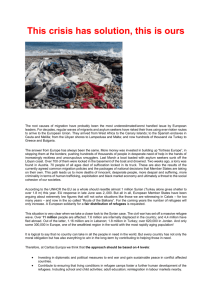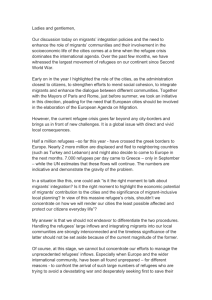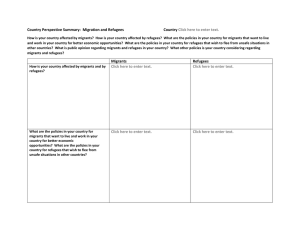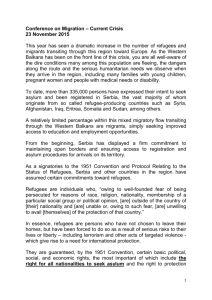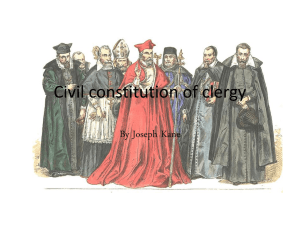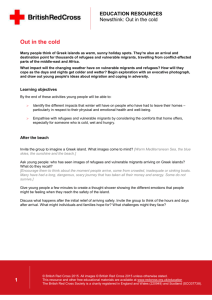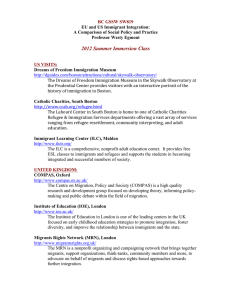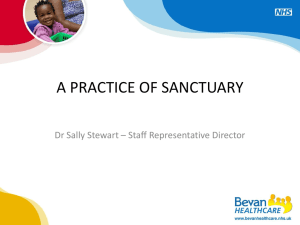English
advertisement
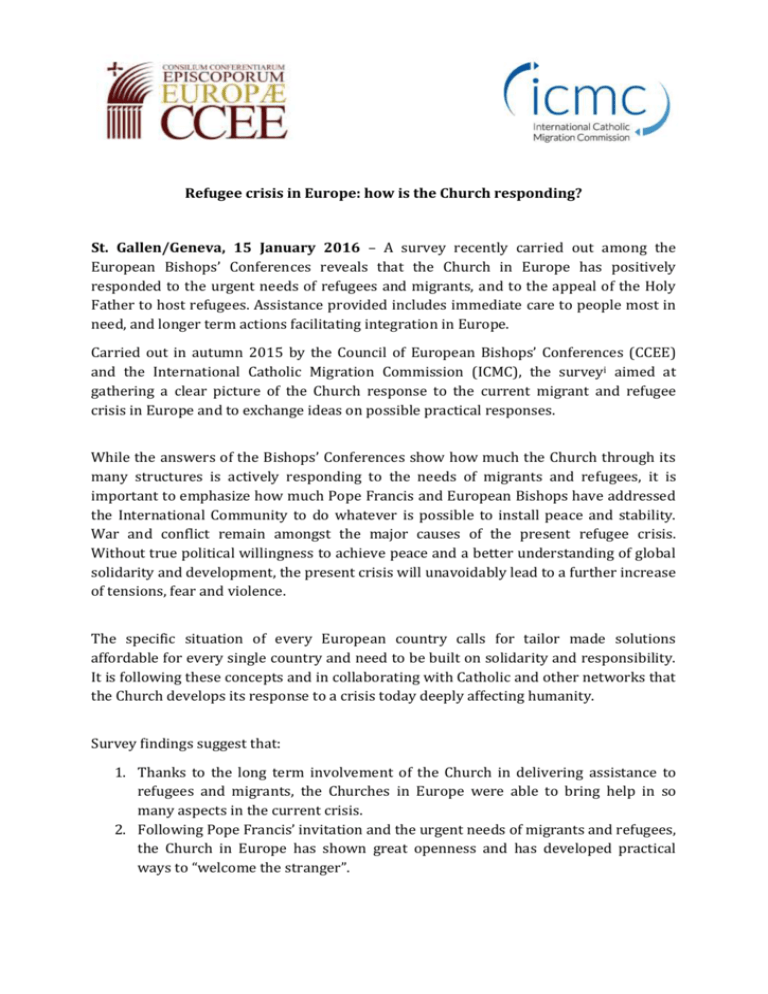
Refugee crisis in Europe: how is the Church responding? St. Gallen/Geneva, 15 January 2016 – A survey recently carried out among the European Bishops’ Conferences reveals that the Church in Europe has positively responded to the urgent needs of refugees and migrants, and to the appeal of the Holy Father to host refugees. Assistance provided includes immediate care to people most in need, and longer term actions facilitating integration in Europe. Carried out in autumn 2015 by the Council of European Bishops’ Conferences (CCEE) and the International Catholic Migration Commission (ICMC), the surveyi aimed at gathering a clear picture of the Church response to the current migrant and refugee crisis in Europe and to exchange ideas on possible practical responses. While the answers of the Bishops’ Conferences show how much the Church through its many structures is actively responding to the needs of migrants and refugees, it is important to emphasize how much Pope Francis and European Bishops have addressed the International Community to do whatever is possible to install peace and stability. War and conflict remain amongst the major causes of the present refugee crisis. Without true political willingness to achieve peace and a better understanding of global solidarity and development, the present crisis will unavoidably lead to a further increase of tensions, fear and violence. The specific situation of every European country calls for tailor made solutions affordable for every single country and need to be built on solidarity and responsibility. It is following these concepts and in collaborating with Catholic and other networks that the Church develops its response to a crisis today deeply affecting humanity. Survey findings suggest that: 1. Thanks to the long term involvement of the Church in delivering assistance to refugees and migrants, the Churches in Europe were able to bring help in so many aspects in the current crisis. 2. Following Pope Francis’ invitation and the urgent needs of migrants and refugees, the Church in Europe has shown great openness and has developed practical ways to “welcome the stranger”. 3. The assistance provided by the Church have stressed that a better understanding of the needs of refugees contributes to deepen respect for human dignity, to change attitudes towards those fleeing for their lives and overcome feelings of fear. Mercy is a better understood concept in the face of the present events, even more so when people have a name and a face. 4. Churches’ work includes immediate care to those most in need, and longer term and diversified actions aimed at facilitating integration. 5. In most European countries, the Church interacts with authorities and builds its action in collaboration with States. Its expertise serves to better inform and develop policies that contribute to social cohesion and development. 6. In building its response and contribute to solving global migration problems, the Church is faced with a number of challenges, such as reduced financial means, growing lack of solidarity between States, inadequacy of some national strategies, growing xenophobic behavior, and feelings of insecurity. 7. Contacts with the Church of origin and with the diaspora vary in the fields of interaction as well as in the purpose for such interaction. The presence of priests from countries of origin has proved to be very helpful in bridging the gaps and establishing the dialogue. The present dramatic human situation calls for diversified solutions in each State, and for the true commitment, solidarity and responsibility of all. The Bishops’ Conferences of the following European countries participated in the survey: Austria, Belgium, Denmark, Finland, France, Germany, Greece, Hungary, Ireland, Iceland, Italy, Lithuania, Luxemburg, Malta, Moldova, Poland, Portugal, Slovenia, Spain, Sweden, Switzerland, Turkey, United Kingdom and Ukraine (Eparchy of Mukacheve). i

